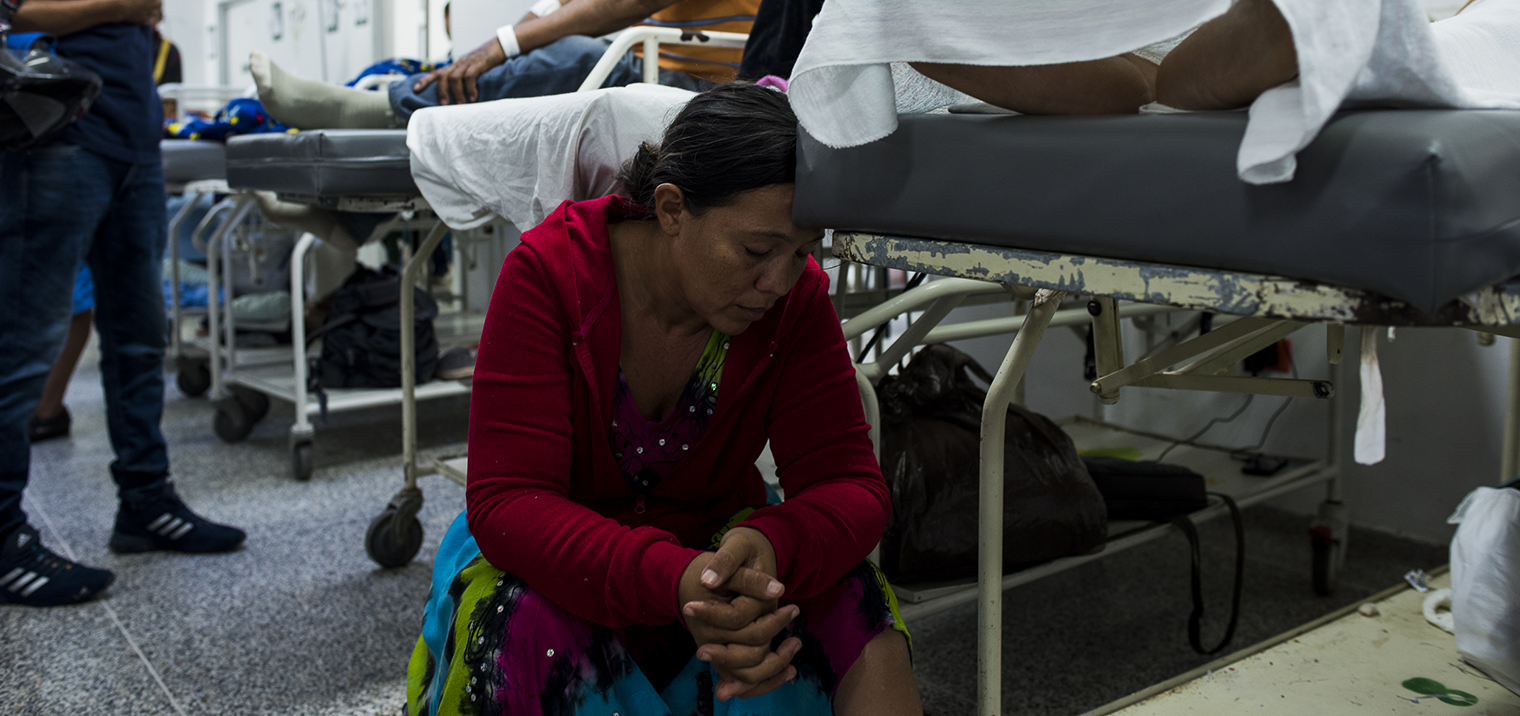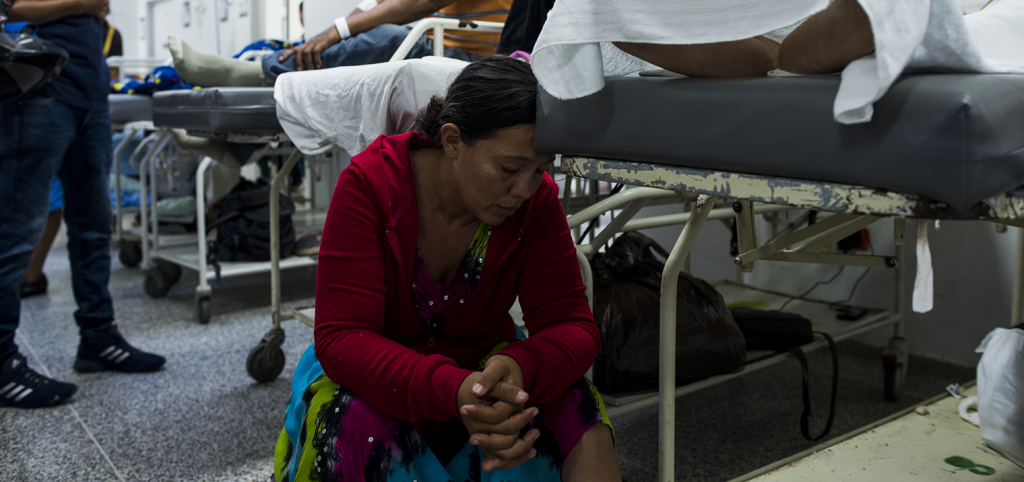According to an internal U.N. report seen by Reuters last week, about 2.8 million Venezuelans are in need of healthcare
Women and babies are dying in Venezuela and disease is rife amid a collapsed health system and severe food shortages, researchers said on Thursday, urging a large-scale United Nations response.
A new report by researchers at Human Rights Watch and the Johns Hopkins Bloomberg School of Public Health said U.N. chief, Secretary-General Antonio Guterres, should officially declare that Venezuela is facing a “complex humanitarian crisis”.
This would formally allow U.N. agencies to step up their aid response to the South American nation and help Venezuelans get the food, medicine and healthcare they urgently need.
“Venezuela’s health system is in utter collapse, which, combined with widespread food shortages, is piling suffering upon suffering and putting even more Venezuelans at risk,” Shannon Doocy, the school’s associate professor of international health, said in a statement.
“We need U.N. leadership to help end this severe crisis and save lives,” said Doocy, who researched the report.
Addressing the spread of vaccine-preventable diseases, such as measles and diphtheria, along with rising numbers of cases of infectious diseases, including malaria and tuberculosis, requires a “full-fledged response” by the U.N., the report said.
U.N. spokesman Stephane Dujarric said the U.N. was “deeply concerned by the substantial humanitarian needs” and was talking with the government in Caracas to reach a “common understanding of the needs in the country”.

“The United Nations continues to consider all mechanisms available to it to ensure that the needs of the Venezuelan people are met,” Dujarric told the Thomson Reuters Foundation in an emailed response.
The U.N. has found itself stuck in the middle of a political struggle that pits Venezuelan President Nicolas Maduro against U.S.-backed opposition leader Juan Guaido, who invoked the constitution to assume an interim presidency in January.
The United States has asked the United Nations Security Council to meet and discuss the humanitarian situation in Venezuela, diplomats said on Thursday. The meeting of the 15-member body is expected to be scheduled for next week.
MILLIONS IN NEED
According to an internal U.N. report seen by Reuters last week, about 2.8 million Venezuelans are in need of healthcare.
This includes some 300,000 people whose lives are at risk because they have been unable to access medicines or treatment for diseases like cancer, diabetes and HIV for more than a year.
Maduro says there is no crisis and no need for humanitarian aid, blaming U.S. sanctions for the country’s economic problems.
In February, Venezuelan government troops blocked U.S.-backed aid convoys entering from Colombia and Brazil.
The International Federation of the Red Cross and Red Crescent Societies said last week it would have unhindered access to provide humanitarian aid in Venezuela, allowing it to scale-up operations to reach 650,000 people.
Latest data available from Venezuela’s health ministry shows that in 2016, maternal mortality rose 65 percent and infant mortality rose 30 percent in just one year, the report said.
Moraima Hernandez, a doctor who works at Concepcion Palacios, a maternity hospital in Venezuela’s capital, said pregnant women were being turned away because of shortages of medicine, including antibiotics, sterilisers and equipment.
“The crisis we face is very profound,” Hernandez told the Thomson Reuters Foundation. “We can’t accept that patients continue to die.”

